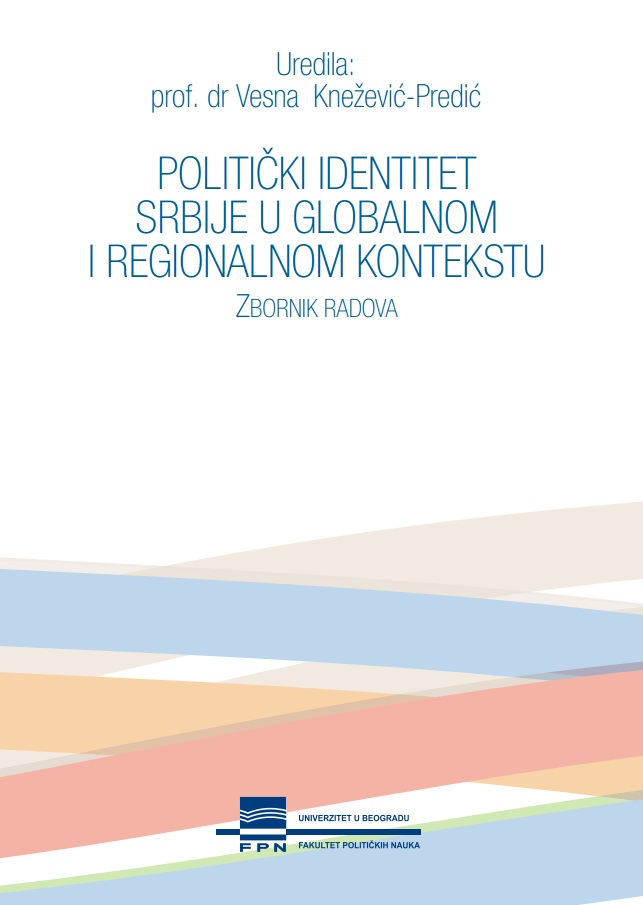
We kindly inform you that, as long as the subject affiliation of our 300.000+ articles is in progress, you might get unsufficient or no results on your third level or second level search. In this case, please broaden your search criteria.

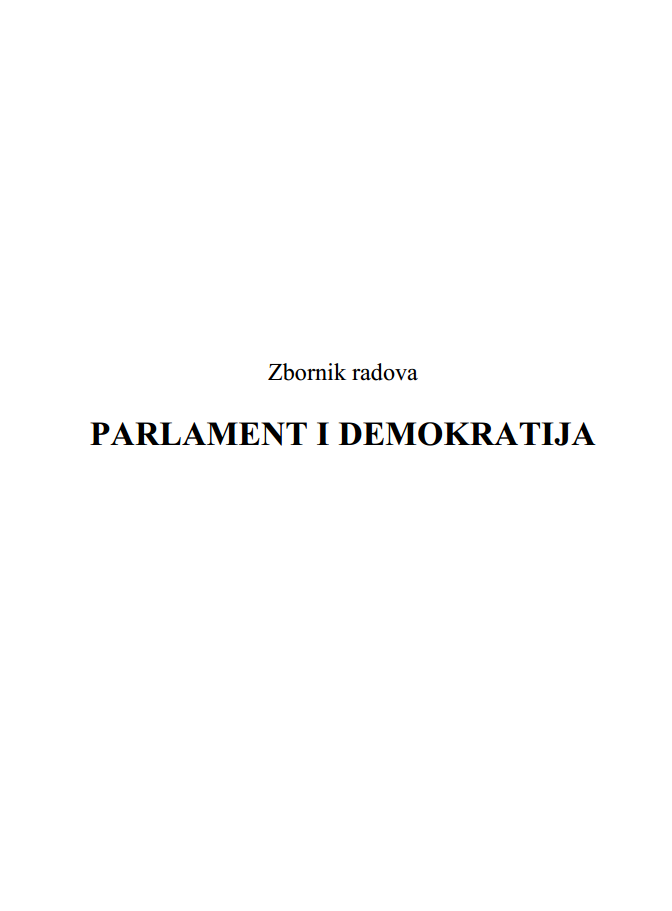
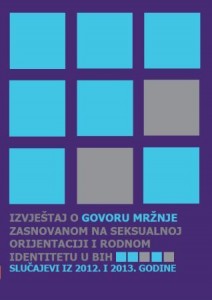
Govor mržnje u BiH, usmjeren prema LGBT osobama, je u porastu zbog sve veće vidljivosti LGBT osoba. Postojeća zakonodavna regulacija govora mržnje je nedovoljna, iako medijima zabranjuje korištenje govora mržnje, ne dotiče se pojedinaca koji ovaj govor svakodnevno izražavaju u javnosti, najčešće na web portalima i facebook stranicama. Iako uglavnom izbjegavaju direktno izražavanje i prenošenje govora mržnje, i sami mediji naizgled neutralnim izvještavanjem i navođenjem, te davanjem medijskog prostora homofobičnim i transfobičnim stručnjacima_ kinjama i pojedincima_kama da izražavaju svoje mišljenje, pomažu širenju govora mržnje i njegovoj dostupnosti široj javnosti. Ovim načinom izvještavanja mediji izbjegavaju vlastitu odgovornost za preneseni sadržaj, a istovremeno privlače pozornost javnosti i prenose pogrešnu sliku o LGBT osobama, kojom se obično pokušavaju poduprijeti već postojeći stereotipi i predrasude. Iako postoje mehanizmi sankcionisanja i uklanjanja govora mržnje preko Regulatorne agencije za komunikacije, koja je nadležna za elektronske medije, i Vijeća za štampu u BiH, koje je samoregulatorno tijelo štampanih medija, oni sami za sebe, bez krivičnog gonjenja odgovornih, ne dovode do željenih rezultata niti do uklanjanja neetičke prakse medijskog izvještavanja. Govor mržnje usmjeren prema LGBT osobama se izražava od netačnih tvrdnji i proglašavanja LGBT osoba bolesnim i devijantnim, do pozivanja na diskriminaciju i nasilje, u najgorim slučajevima do prijetnji smrću, te doprinosi netolerantnom stavu bh. društva i marginalizaciji LGBT osoba. Ispoljavanjem govora mržnje, također se dovodi i do težih incidenata, pa čak i počinjavanja krivičnih djela i zločina iz mržnje, a koristi se i da bi se podržali počinitelji tih djela, te opravdala njihova djela, čime se šalje poruka LGBT osobama i ostalim marginaliziranim grupama da nisu poželjni_e u bh. društvu. Da bi obezbijedila poštivanje prava i sloboda, kao i dostojanstvo svih svojih građana, između ostalih i LGBT osoba, te pružila adekvatnu podršku marginaliziranim grupama koje su najčešće žrtve govora mržnje, i u potpunosti dokazala da osuđuje netoleranciju, mržnju, diskriminaciju i nasilje, Bosna i Hercegovina bi trebala: - ustanoviti i javno diseminirati odgovarajuću i sveobuhvatnu definiciju govora mržnje koja, između ostalog, uključuje i seksualnu orijentaciju i rodni identitet kao zabranjene osnove za govor mržnje; - adekvatnu zabranu govora mržnje propisati krivičnim zakonima oba entiteta tj. Federacije BiH i Republike Srpske i Krivičnim zakonom Brčko distrikta; - zabranom govora mržnje obuhvatiti ne samo medije kao moguće počinioce, nego i državne institucije i sve ostale pravne i fizičke osobe.
More...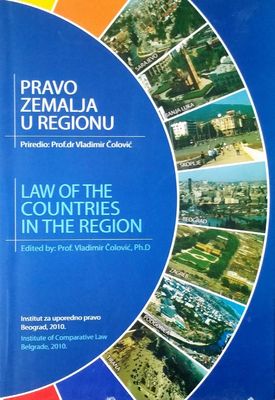
European Union gives extraordinary importance to developing preconditions for e-government, in its strategic documents. Great number of ongoing programmes, or ones planned in near future, encompass promotion of e-government. Reform of national legal systems and existence of clear national strategies and action plans of egovernment, as well as harmonization of legal acts in this area, are necessary prerequisites for achieving e-government at the EU level. SEE countries also give great attention to development of e-government and harmonization of their legal acts in this area with ones of European Union. Harmonization between regulation of SEE countries and EU has been achieved in great degree, but implementation of legal solutions is not being accomplished on same pace in all of SEE countries. It is necessary that those existing differences should be overcome. All strategic documents of SEE countries contain plans for harmonization of all aspects of legislation and implementation for the rules concerning electronic government, so it is expected that even better results will be accomplished in near future.
More...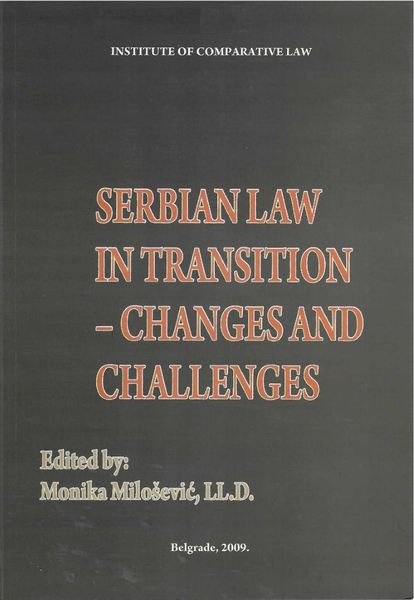
This article is a part of one big study – monography that was written by Slobodan Vuković : „The Ethics of the Western Media“. In that book the Anti-Serbian propaganda and the hate speech against Serbs, that were charactersisticof the preceding two decades, are analyzed. But, someone could ask why this text is here and what is the connection between the transition and the Anti-Serbian propaganda that was dominant in the Western world and in the Western media. We think that for the Serbian transition not only wars, criminality, corruption, suicides, social anomy, chaotic social reality, unemployment, depression of the people, new laws are characteristic, but also the negative image of Serbs constructed in the Western media. That negative image had and still has a big and important influence on our transition, on our social reality, on the psychology of those who have contacts with Serbs and on the psychology of Serbs also. Due to that negative false image, Serbia was bombarded ten years ago and that had many other negative social, legal and psychological consequences, such as the criminality, „Vietnam syndrom“, suicides and many other things. In some way, thanks to that fabricated negative image, Serbia is more distant from Europe than other countries of the region.That negative image also had an impact on the foreign investments. So, consequently, we decided to include this text in this book about the Serbian law in transition.
More...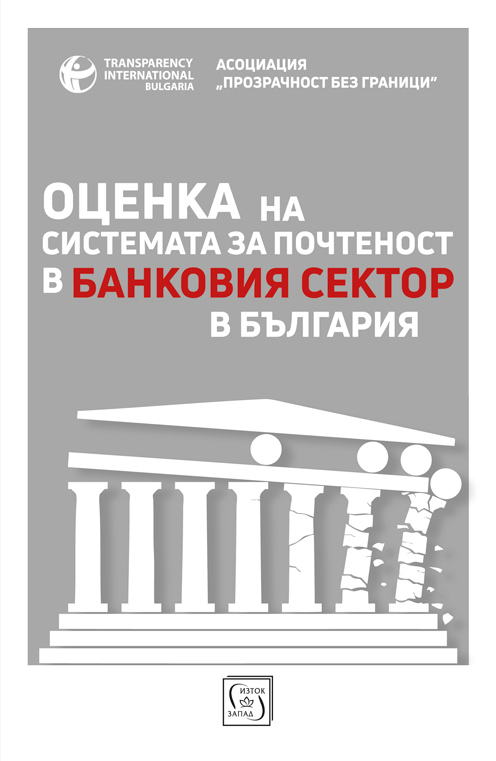
This study is provoked by one of the most significant cases of abuses over the last two decades in Bulgaria - the bankruptcy of CCB (Corporate Commercial Bank), the fourth largest bank in the country. After the 1996-1997 crisis, when one third of the banks went bankrupt, the country's banking sector collapsed. This is the second case in which huge financial resources "evaporated" and the negative consequences affected a wide range of public institutions and private subjects. The emergence of periodically recurring financial crises, with multiple impacts on public, economic and political life, motivates Transparency International Bulgaria to look for a systematic response to the problem and look beyond the specific case. The present book is based on the analytical approach of the international anti-corruption organization Transparency International "National Integrity System" which assesses clearly defined criteria, the capacity, functioning and management of sectors and institutions with key importance in counteracting corruption. The study is based on an analysis of the legislation and practical actions of the investigated institutions, a wide range of documentary sources, reports, assessments, media publications, and interviews with experts and public figures that have had direct observations and touch with the CCB case. It reflects an attempt to formulate an impartial, objective assessment of the functioning of the banking supervisory system in the 2009-2014 periods but also pursues another objective - to serve as a starting point for policies and strategic actions to give an adequate systemic response to established deficits. Viewed through this prism, this publication expresses the ambition of the Transparency International Bulgaria to not only prevent future crises of this nature, but also to contribute to the institutional strengthening of the system of supervisory institutions in Bulgaria.
More...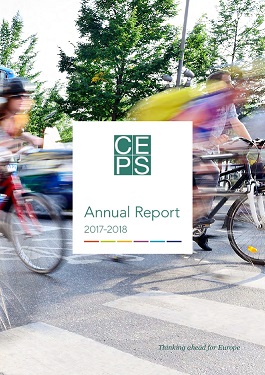
Populists usually don’t have much use for complexity. They prefer to build their proposals on the basis of simplistic ideas about the pluralism of our societies and the definition of their electoral platforms. Moreover, we are in the midst of a period when “fake news” competes with reality in an attempt to attract the support of citizens or to manipulate their understanding of what is actually going on. Nowadays, the role of think-tanks is more important than ever before in exposing and countering these trends and providing authoritative analysis to policy-makers and other stakeholders. Based on rigorous analysis of the relevant literature, facts and data, think tanks make an essential contribution to the decision-making process by increasing the awareness of the new challenges and providing educated insights. Their findings and recommendations are instrumental in the design of effective policies, capable of achieving viable outcomes.
More...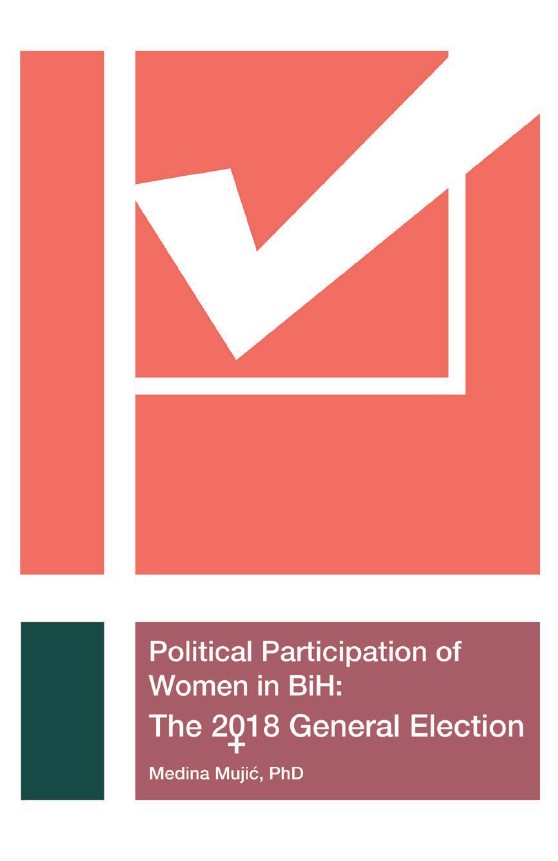
Participation of politically engaged women in political processes in Bosnia and Herzegovina has been a subject of discussion in the public sphere of Bosnia and Herzegovina for many years. This issue is most frequently addressed by civil society representatives, both men and women, relevant institutions and individual female defenders of women’s human rights. The current situation regarding representation of women in politics is not satisfactory. Yet, it is quite rarely in focus of discussions among representatives of political parties who are held responsible, informally and formally, for the lack of women’s participation in government.
More...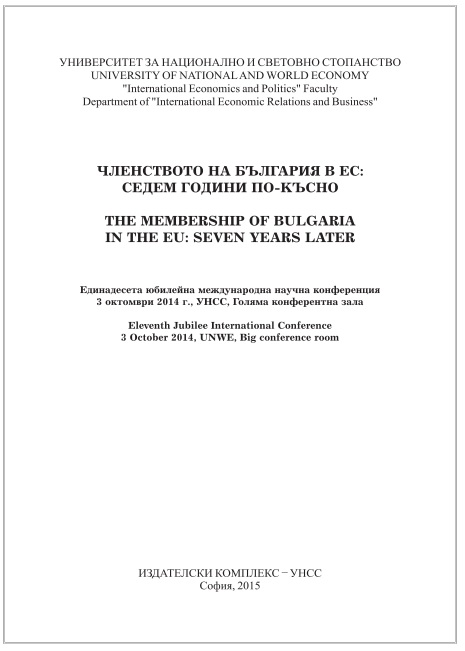
This book collects scientific papers and reports presented on the conference ‘The Membership of Bulgaria in the EU: Seven Years Later’ organized by the International Economic Relations and Business Department at University of National and World Economy (UNWE), Sofia, Bulgaria. The conference, held on 3 October 2014, traditionally provided a stage for prominent academics, dedicated PhD students and professionals to discuss contemporary topics related to multiple aspects of the European integration, its effects on the Bulgarian economy, socio-economic environment, international business and relations, finance and politics. The authors in this edition of the book thoroughly reviewed the economy of the Euro area and the EU as it progresses after the latest recession. A Group of authors focuses attention on the banking sector, monetary aspects and inflation, the development in the Economic and monetary union within EU, the Single Supervisory Mechanism and the overall competitiveness and recovery of the European markets. Cross-border partnership with EU neighbours and related instruments, cohesion among the EU member states, experience with the European funds and corresponding public procurement process are another thematic cluster discussed in the book. The researchers increasingly examine subjects related to the energy policy and security, the EU energy policy development and actions in particular. The contributors review matters related to the renewable energy sources, the establishment of the European Energy Union and other institutional and policy developments on supranational level. Another thematic cycle in the book is related to matters concerning the corporate management, business strategy and marketing, new markets expansion and interculturalism. This is intertwined with papers dedicated to the education, human resource involvement and adaptation to the working environment, research and innovation. ‘The Membership of Bulgaria in the EU: Seven Years Later’ is an annually organized academic event with the vision to foster open dialogue, offer contemporary research and exchange of ideas between fellow academics, policy makers, businesses, stakeholders and the public.
More...
The survey was conducted on June 29 – July 2, 2020 on a sample of 305 inhabitants of the commune. He measured people’s opinion about the central and local public administration institutions, about the main candidates for City Hall, the comparison between them, the expectations of the future mayor, the voting intentions, the way the City Hall was involved in certain administrative issues, the achievements and failures of the current mayor. of the main opponents.
More...
The survey was conducted on June 11-15, 2020 on a sample of 725 inhabitants from all localities of the county. He measured people’s opinion about central and local public administration institutions, about the main candidates for City Hall, about political parties, expectations of the future mayor, voting intentions, how the City Hall got involved in certain administrative issues, opinion about candidates for Council presidency County, voting intentions for this position.
More...
The survey was conducted on June 9-11, 2020 on a sample of 515 inhabitants of the city. He measured people’s opinion about central and local public administration institutions, about the main candidates for City Hall, about political parties, expectations of the future mayor, intentions voting, the way in which the City Hall was involved in certain administrative issues, the opinion about the candidates for the presidency of the County Council, the voting intentions for this position.
More...
The survey was conducted between January 10-19, 2020 on a sample of 808 adults living in the city. He measured how the population perceives the involvement of the mayor’s office in various administrative issues, trust in local political leaders, voting intentions in local elections, the perception of local party organizations.
More...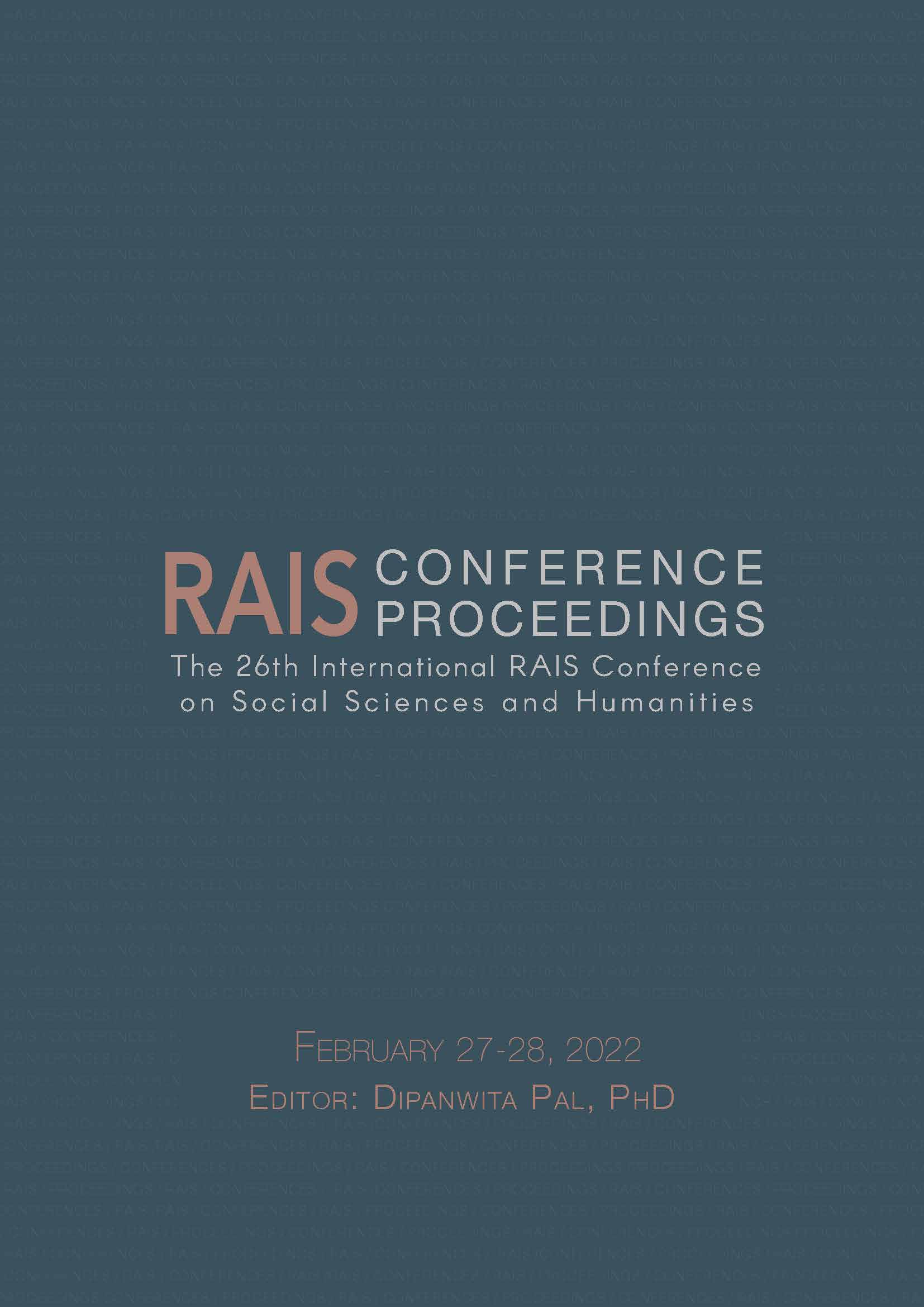
The article addresses the topic of innovation strategies and mechanisms used in the Romanian public sector in order to optimize the innovation process within the country, and, at the same time, it focuses on the European Union strategies and mechanisms implemented on a national level. The purpose of this article is to present a framework on the modalities of innovation in the public sector, focusing on innovation strategies, but also on the mechanisms used to achieve the proposed goal. This article is based on the research of scientific papers focusing on innovation, especially on the public sector. The importance of using innovation strategies and mechanisms on a national level needs to be understood because it is through innovation that the demands of the citizens of a state can be met.
More...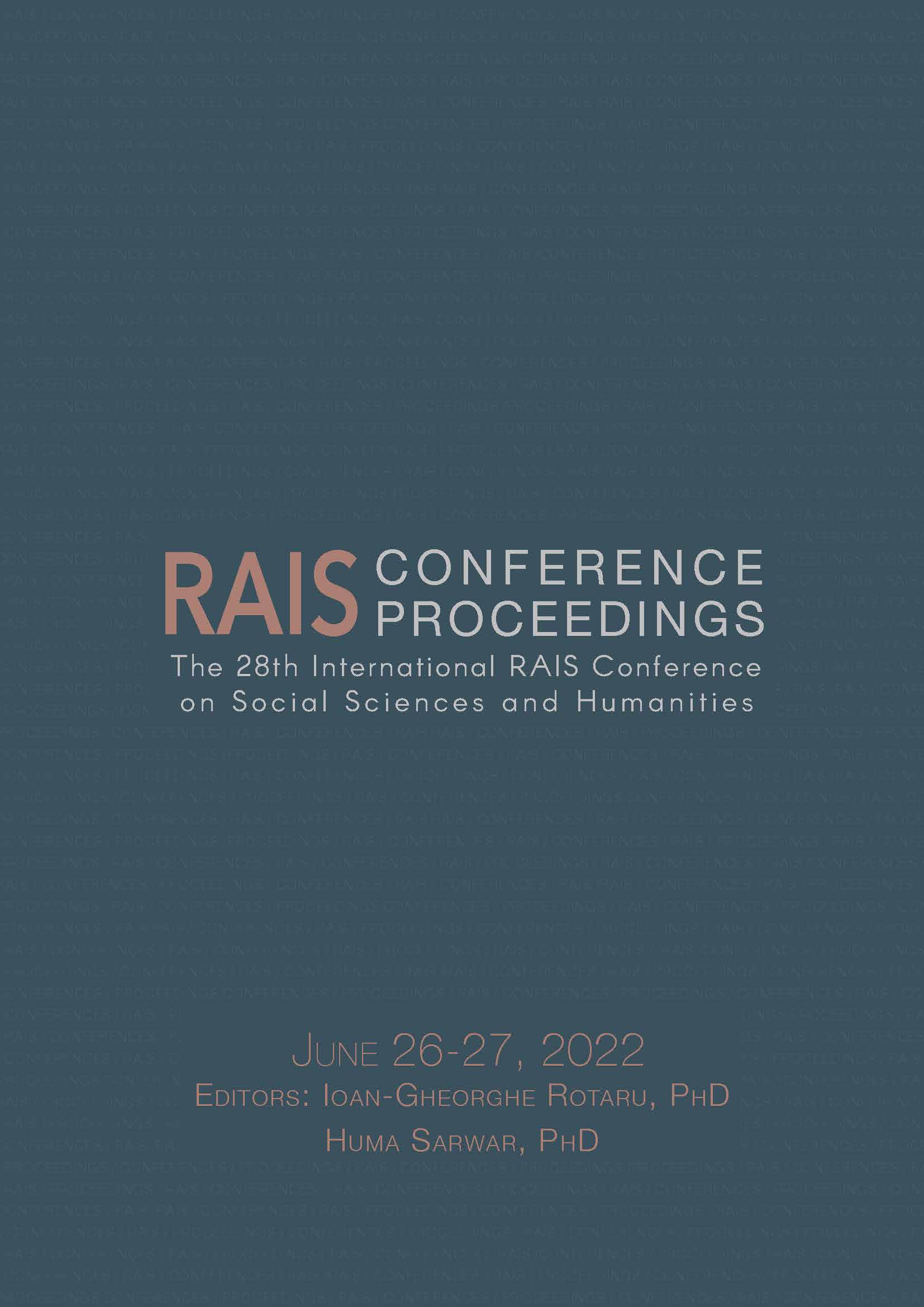
The rapidly changing media environment, as a result of technological advances, is proving hard to track and control for those who hold stake in the way information reaches people of interest, such as politicians and their voters. As a result, political communication has been facing several challenges in recent years. The mediation role of professional media seems to be losing grounds to a growing echo of alternative media voices, for example, leading to increased personalization or skewing of electoral campaigns to personalities rather than national issues, just as imagery and perception of individual candidates through political marketing by the media become more mainstream. With that in mind, 300 questionnaires were distributed to voter age population in Nigeria out of which 289 were retrieved and used. The intent was to see how alternative media is shaping political discourse and to what extent. The result shows an extensive use of alternative media at 64%. One of the most significant findings is: a much higher rate of citizen participation recorded at 84% of respondents brought about by popular use of alternative media, has not translated into satisfaction with the current state of politics and politicians which was rated at 48% and dissatisfaction at 52%. With 44% of the same respondents citing non relevance of contents disseminated by professional media as the main reason for the shift to alternative media, recommendations include the need for professional media to make concerted efforts in following new developments in technologies and user taste, in order to match those changes with favorable contents
More...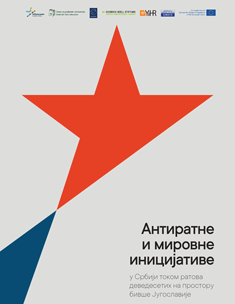
Један од основних предуслова за миран и просперитетан живот у савременом друштву је мир. Мир обезбеђује услове за економски и привредни развој и општи друштвени напредак. Доприноси том циљу могу бити различити, а један од њих је могућ кроз образовање за мир. Учење о миру обухвата знања о мировним покретима, антиратним иницијативама, алтернативним начинима превазилажења и решавања сукоба, чињенице о разоружању, животној средини и одрживом развоју, људским правима, другим културама и религијама, различитостима и др.
More...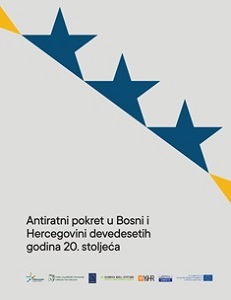
U tekstu će biti riječi o postojanju širokog kruga političke, intlektualne i kulturno-umjetničke opozicije koja je od kraja osamdesetih godina radila prije svega na iznalaženju rješenja izlaska iz jugoslovenske krize, potom na spriječavanju izbijanja ratnih sukoba, te na okončanju istih, odnosno kroz kulturno-umjetnički angažman tokom rata nastojala ukazati na stradanja civilnog stanovništva. Građom i izvorima koji se iznose i koriste u tekstu pokušava se tema osvijetliti iz više različitih perspektiva. U prvom dijelu teksta ukratko se izlaže kontekst u kojem su djelovale nenacionalističke organizacije i političke stranke, antiratna i građanska udruženja. Zatim će se ukazati na masovne antiratne proteste i na pojedinačne individualane pokušaje adaptacije stanovništva na novonastale ratne okolnosti.
More...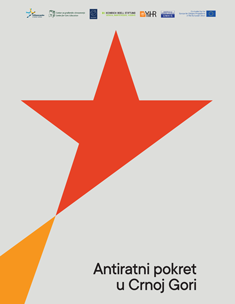
Od samog početka ratnih dešavanja na prostoru bivše Jugoslavije, crnogorske vlasti su se stavile na raspolaganju režimu Slobodana Miloševića. Sprovodeći politiku zvanične Srbije i JNA (kasnije Vojske Jugoslavije) crnogorsko rukovodstvo se oštro obračunavalo sa političkim neistomišljenicima i svojim oponentima. Osudama vladajućeg režima bili su izloženi protivnici rata (“domaći izdajnici”), zagovornici crnogorske nezavisnosti (“separatisti”) i kritičari aktuelnih političkih trendova.
More...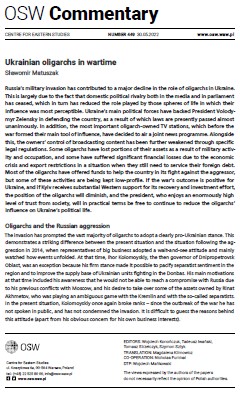
Russia’s military invasion has contributed to a major decline in the role of oligarchs in Ukraine. This is largely due to the fact that domestic political rivalry both in the media and in parliament has ceased, which in turn has reduced the role played by those spheres of life in which their influence was most perceptible. Ukraine’s main political forces have backed President Volodymyr Zelensky in defending the country, as a result of which laws are presently passed almost unanimously. In addition, the most important oligarch-owned TV stations, which before the war formed their main tool of influence, have decided to air a joint news programme. Alongside this, the owners’ control of broadcasting content has been further weakened through specific legal regulations. Some oligarchs have lost portions of their assets as a result of military activity and occupation, and some have suffered significant financial losses due to the economic crisis and export restrictions in a situation when they still need to service their foreign debt. Most of the oligarchs have offered funds to help the country in its fight against the aggressor, but some of these activities are being kept low-profile. If the war’s outcome is positive for Ukraine, and if Kyiv receives substantial Western support for its recovery and investment effort, the position of the oligarchs will diminish, and the president, who enjoys an enormously high level of trust from society, will in practical terms be free to continue to reduce the oligarchs’ influence on Ukraine’s political life.
More...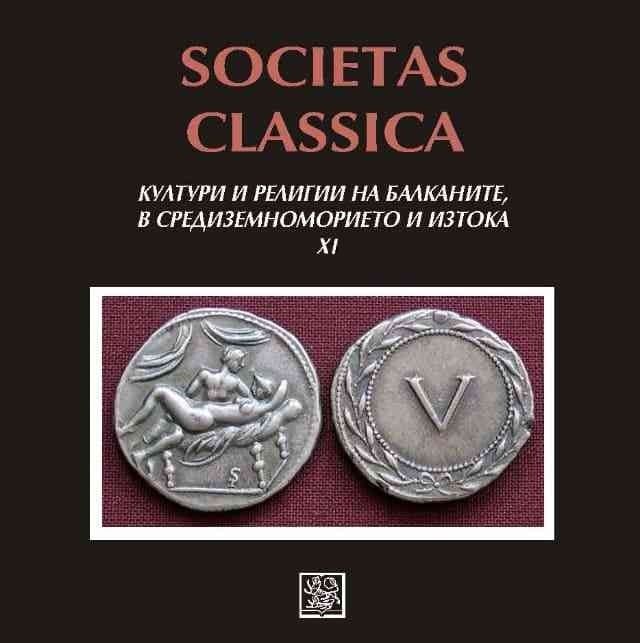
𝑆𝑜𝑐𝑖𝑒𝑡𝑎𝑠 𝐶𝑙𝑎𝑠𝑠𝑖𝑐𝑎 is a multilingual collection of papers presented at the international scientific conference that has been organized by the Department of Classical and Eastern Languages and Cultures of St. Cyril and St. Methodius University of Veliko Tarnovo (Bulgaria) since 2002. Until 2015, the conference was held annually. Since 2018, it is held once every two years. St Cyril and St Methodius University Press issues the collection within the Dr. Nicola Piccolo series. The wide range of topics and the opportunity for authors to submit their academic publications in the original language attracts researchers from all over the world.
More...